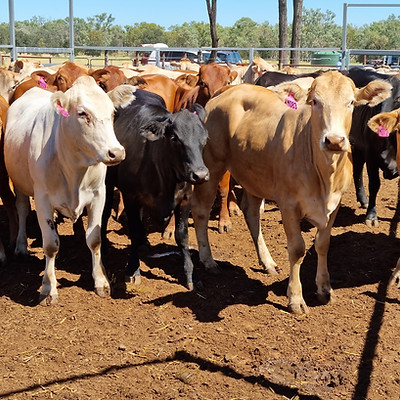

Delivering landscape and community benefits through partnerships and investment.
Land and Community development projects
Greener Pastures delivers projects that benefit the landscape and community. Explore our ongoing and recently completed projects below.

Drought resilient soils & landscapes project
funded by the future drought fund
may 2022 - sept 2024
This project will demonstrate that relatively low-cost interventions and changes in grazing practices can rehydrate grazing landscapes, improve soil, water, and biodiversity assets, and remediate existing erosion.
Five demonstration properties participated in the design, implementation, and evaluation of on ground works and grazing practices with recognized industry experts. The properties were monitored, case studies developed, and field days/education events were held to share the outcomes and benefits across a wider network of graziers.
To learn more about the rehydration works undertaken on each property see our case studies and the videos below.
This Activity is funded through the Future Drought Fund (FDF) Drought Resilient Soils and landscapes (DRSL) Grants Program.
FUTURE DROUGHT FUND Project Videos
Drought Resilience:
Bruce Currie describes the importance of having the pasture rain ready and how it is necessary to combine rotational grazing with altering the stocking rate according to rainfall levels.
Drought Preparedness:
Nicole James describes the importance of grass in preparation for drought.
Glenstar Technology:
This video outlines the usefulness of various types of technology, including: a step-by-step guide to planning water and fence infrastructure that saves time and money while being accurate; the use of MyGrazing software to manage stocking rates; and the multiple uses of a drone.
Pressure at Water:
Greg Spencer describes the importance of a well-designed water system in a cell grazing system and the reasons to have pressure at water points.
Girl power project
funded by meat & livestock australia
mar 2020 - aug 2024
The Girl Power Project is investigating and demonstrating how replacement heifers can be better managed in extensive rangeland grazing enterprises across Australia's north.
The project aims to demonstrate that interventions developed from research and experience in other regions can cost effectively improve heifer productivity, given the limited feed base and native pasture composition in the Desert Uplands bioregion.
Girl Power is delivered by the Desert Uplands Build-Up and Development Strategy Committee in partnership with CHRRUP and with funding from Meat and Livestock Australia's Producer Demonstration Site program.

Regenerative grazing tools for burdekin soils & pastures
funded by the national landcare program
sep 2019 - june 2023
Regenerative Grazing Tools for Burdekin Soils and Pastures is a four year project which supported three cluster groups of five grazing enterprises (fifteen enterprises in total) managing 75,000 ha in the Belyando, Suttor and Cape Campaspe sub basins of the Burdekin River catchment.
The project assisted these, as well as additional graziers in the district, to adapt to climate change and regenerate soil health and pasture condition in grazing landscapes. This was achieved through grazing management strategies. The project included an integrated approach to land resource planning, forage budgeting and business system planning.
The project is delivered by CHRRUP in partnership with NQ Dry Tropics and funded through the Australian Government's National Landcare Program.

Supporting Graziers
to adopt or refine
the practices of
forage budgeting

69% of participants felt is was
easy to use
pasture management.
Forage Budgeting in the Fitzroy
Funded by department of environment and science
jan 21 - Sept 22
The Forage Budgeting in the Fitzroy project delivered an innovative grazier to grazier forage budgeting service across the Fitzroy catchment and Belyando sub-catchment.
The project was delivered by graziers in the region to other graziers who were supported in learning how to manage and adjust stock numbers in paddocks to achieve a balance between maximising pasture utilisation and improving land condition.
The project was funded through the Queensland Government's Reef Water Quality Program.




